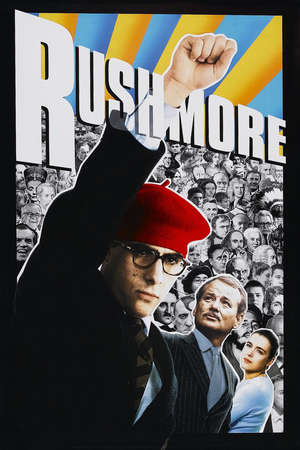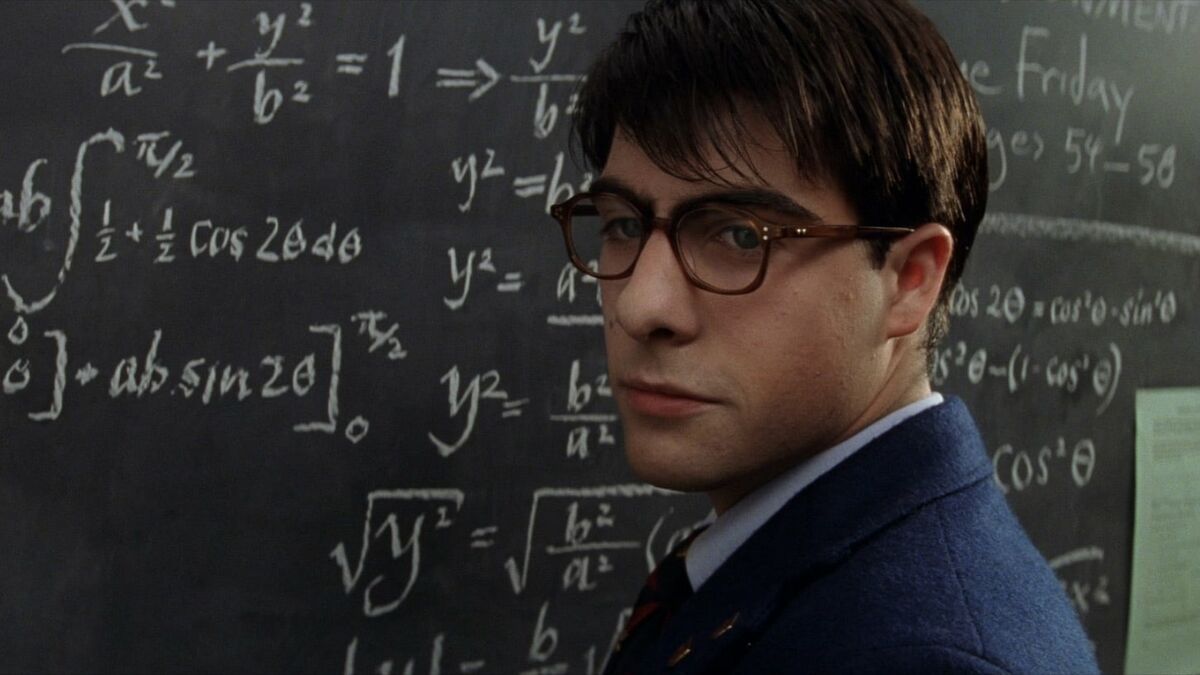

This film is doing something interesting in presenting Max as an almost unbearable human being—someone who marries total earnestness with total pretension, self-aware enough to put on airs but not quite enough to realize how obvious it is that he's putting on airs, who once heard the phrase "fake it 'til you make it" and decided to make that his entire personality—and then tries to inspire in the viewer an affection for him. He mellows out over the course of the film, but only moderately. He's still essentially manipulative and overbearing, and one gets the sense that the only reason Margaret is even able to cope with him is a tremendous stubbornness in her own right.
The film's real argument is that Max's sheer intensity, whatever his motivations, creates a more vibrant world around him. He's responsible for everything interesting we ever see at either school, he literally speaks Guggenheim back to life, and in particular he brings color into Herman's dull world. This film is an argument for vivacity no matter the cost, for action-in-itself as an antidote to emptiness.
There's even a kind of desperation in it, just under the surface, a terror of what might happen if even for a moment you stop moving. You could even read this as a tragedy of alienation, in which a man and a boy claw feverishly at some kind of real connection only to get subsumed under an endless tide of aesthetics and activities. Are Max's plays an expression of himself, or are they just another thrashing hand seeking something real but grabbing only empty air?